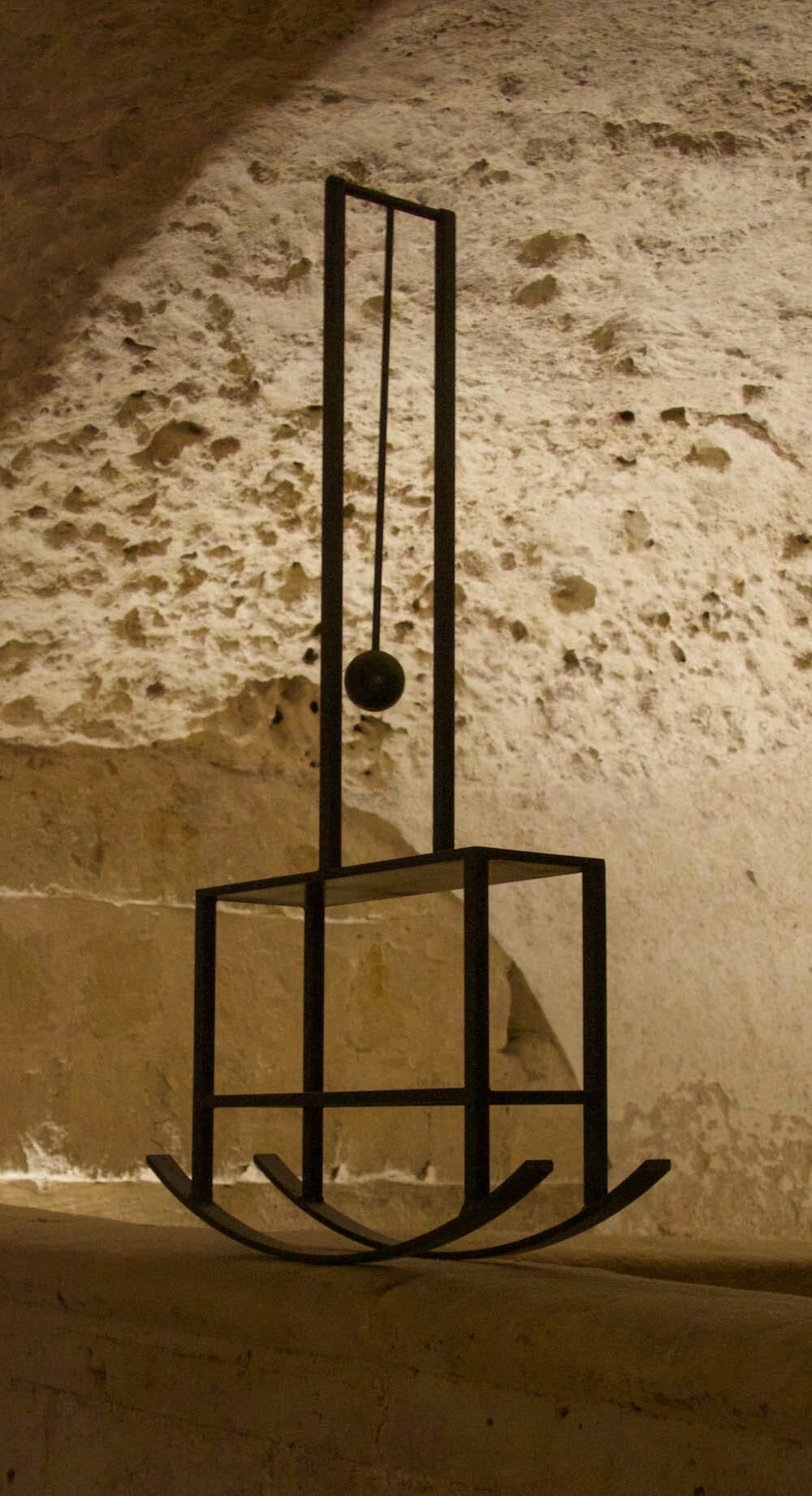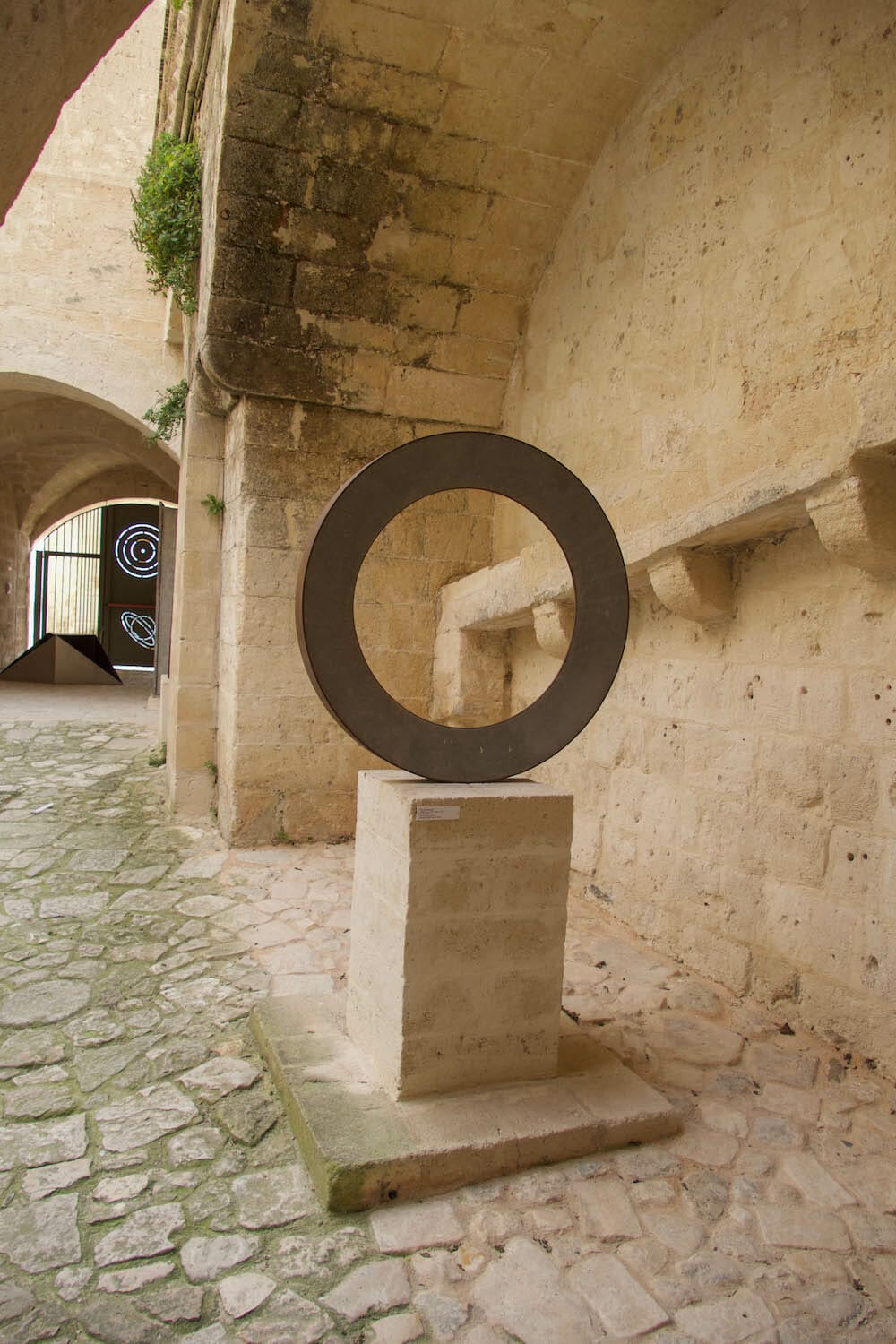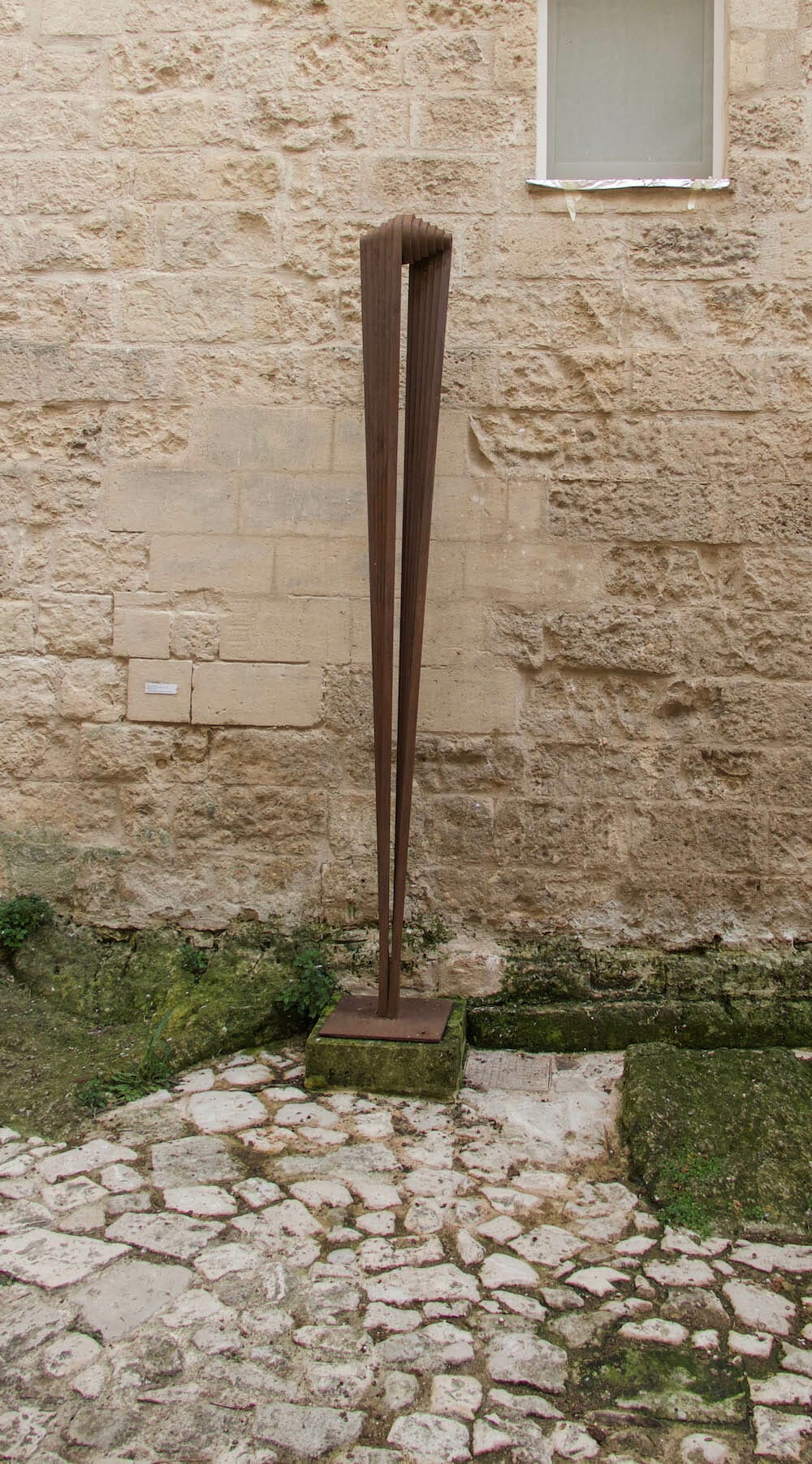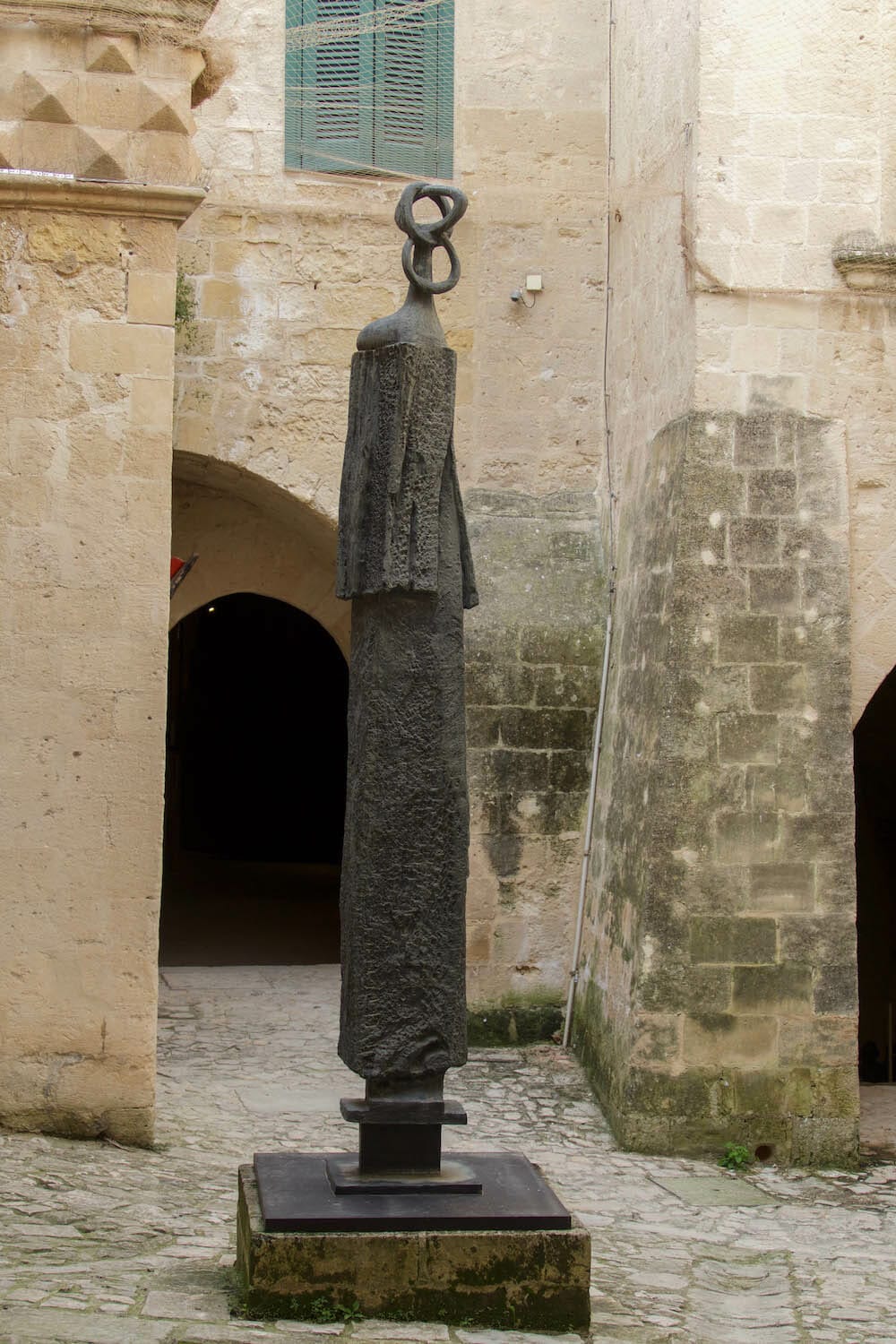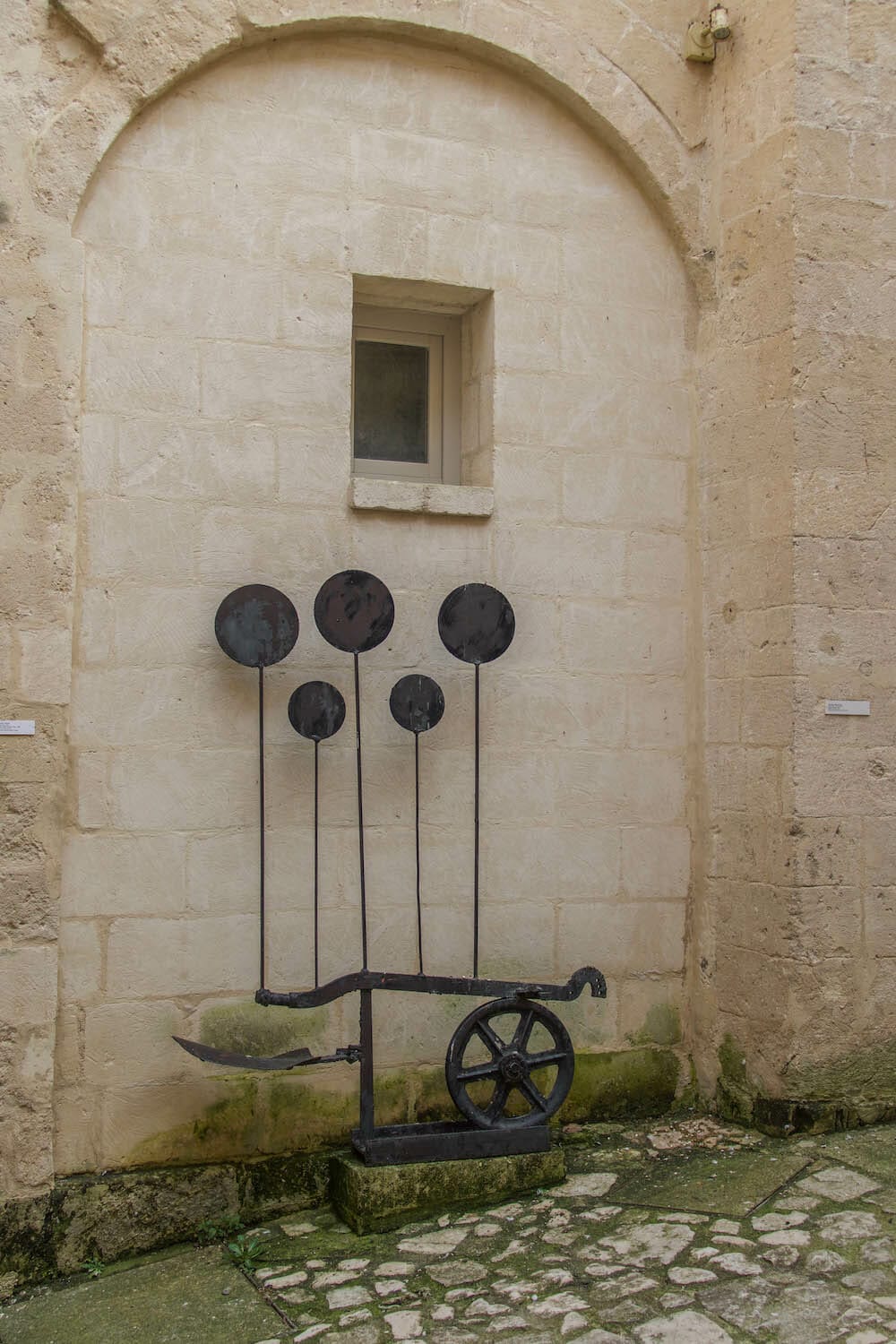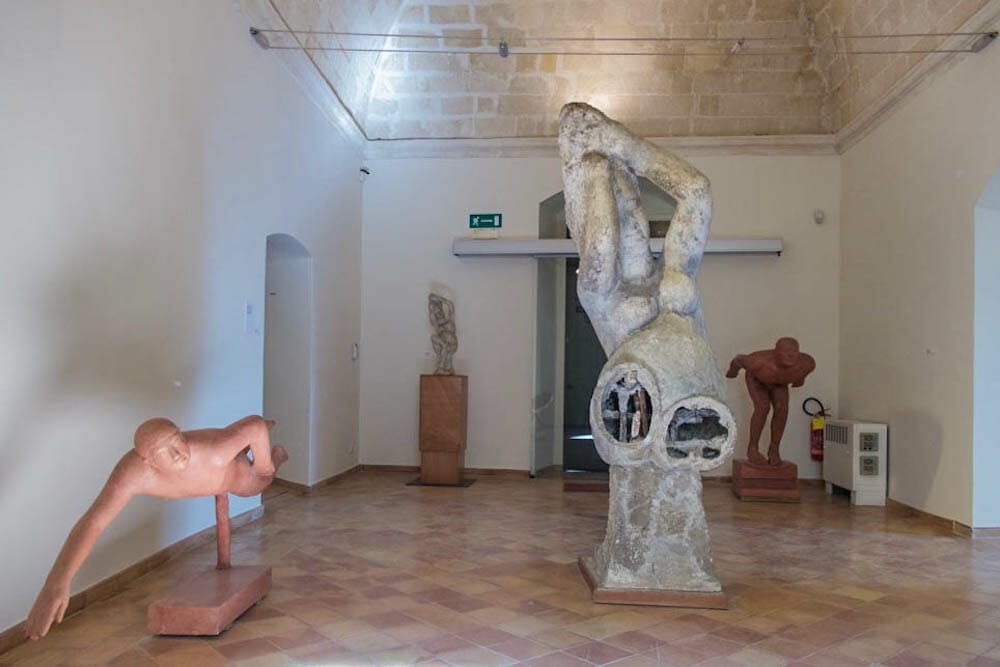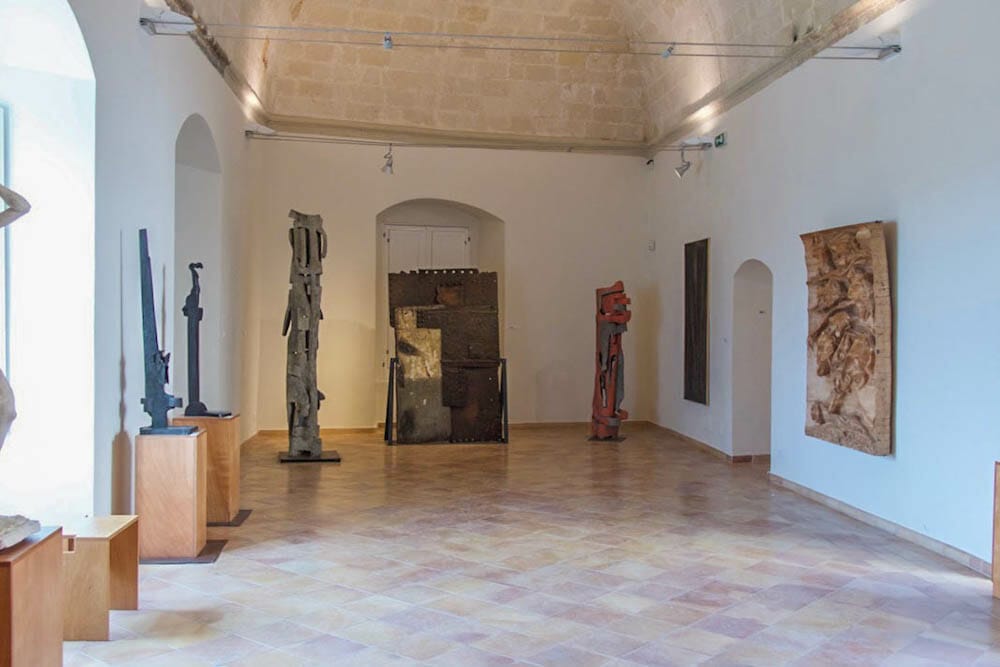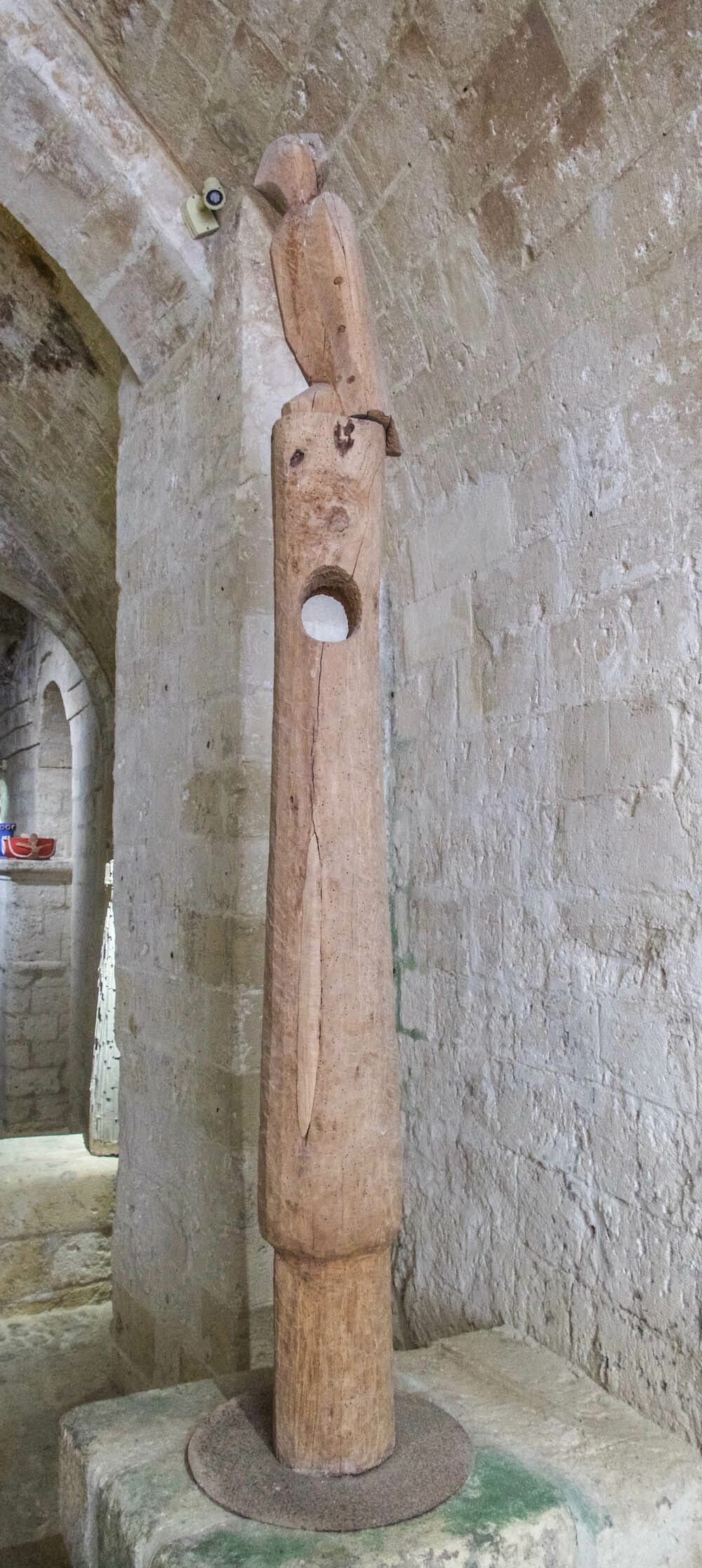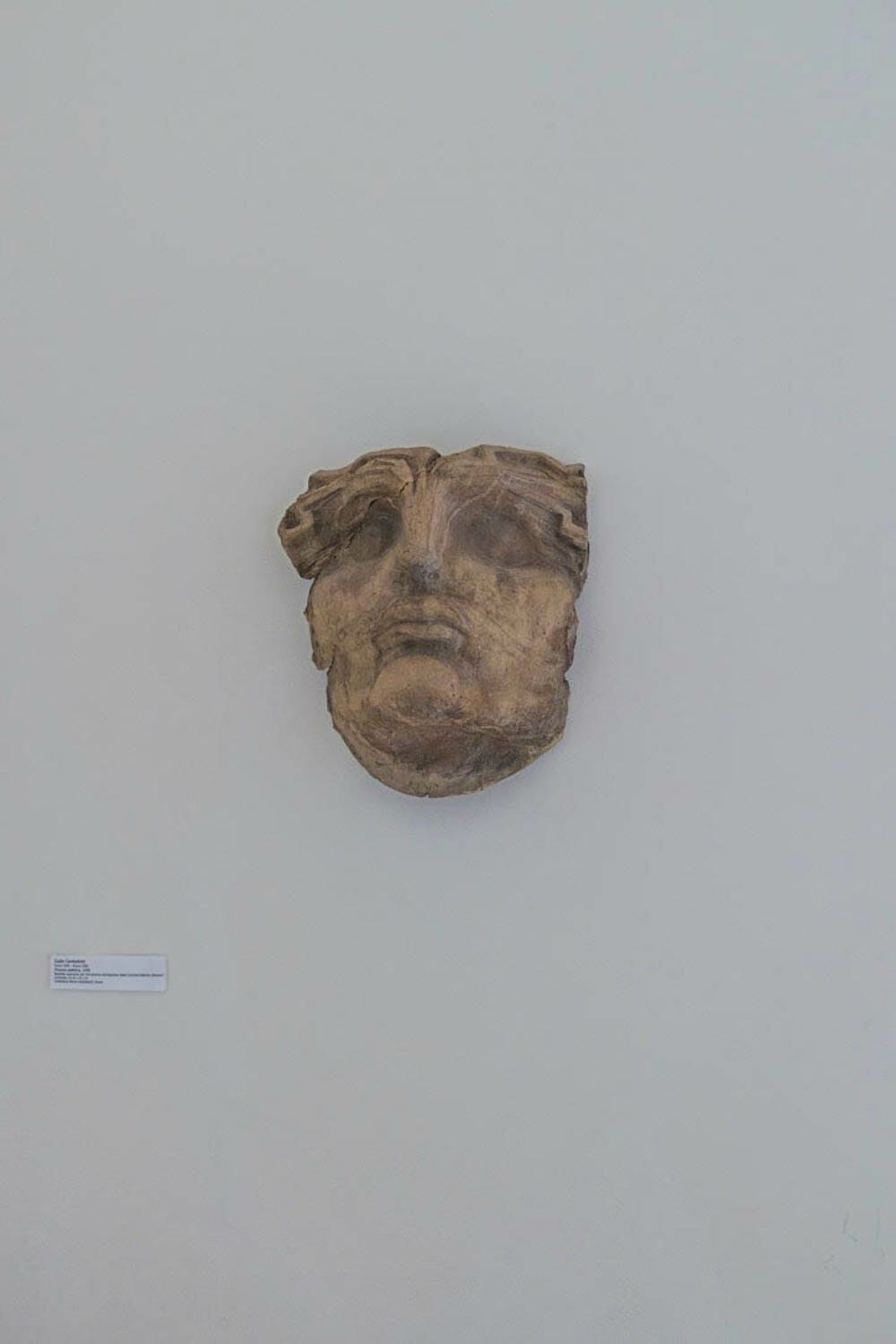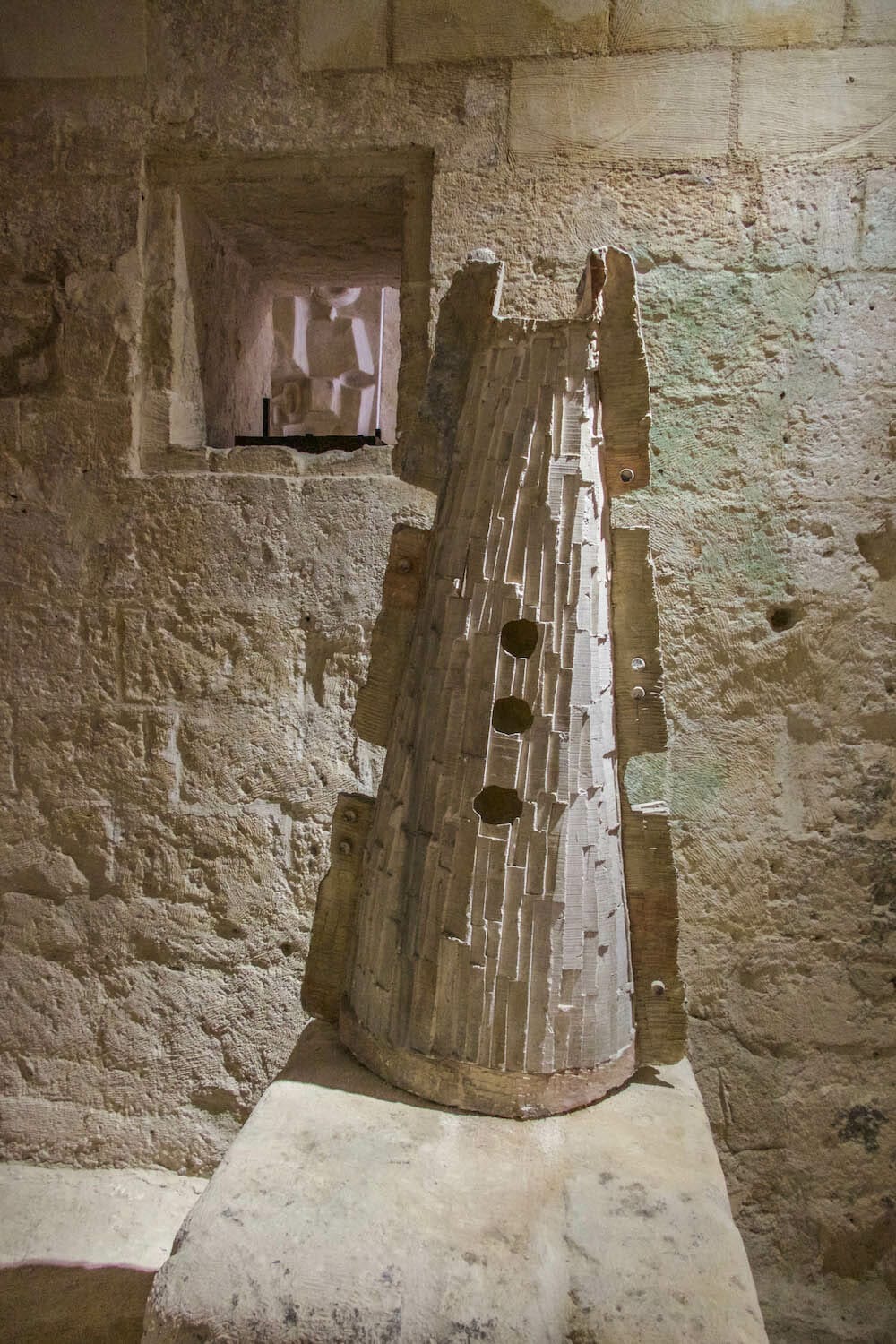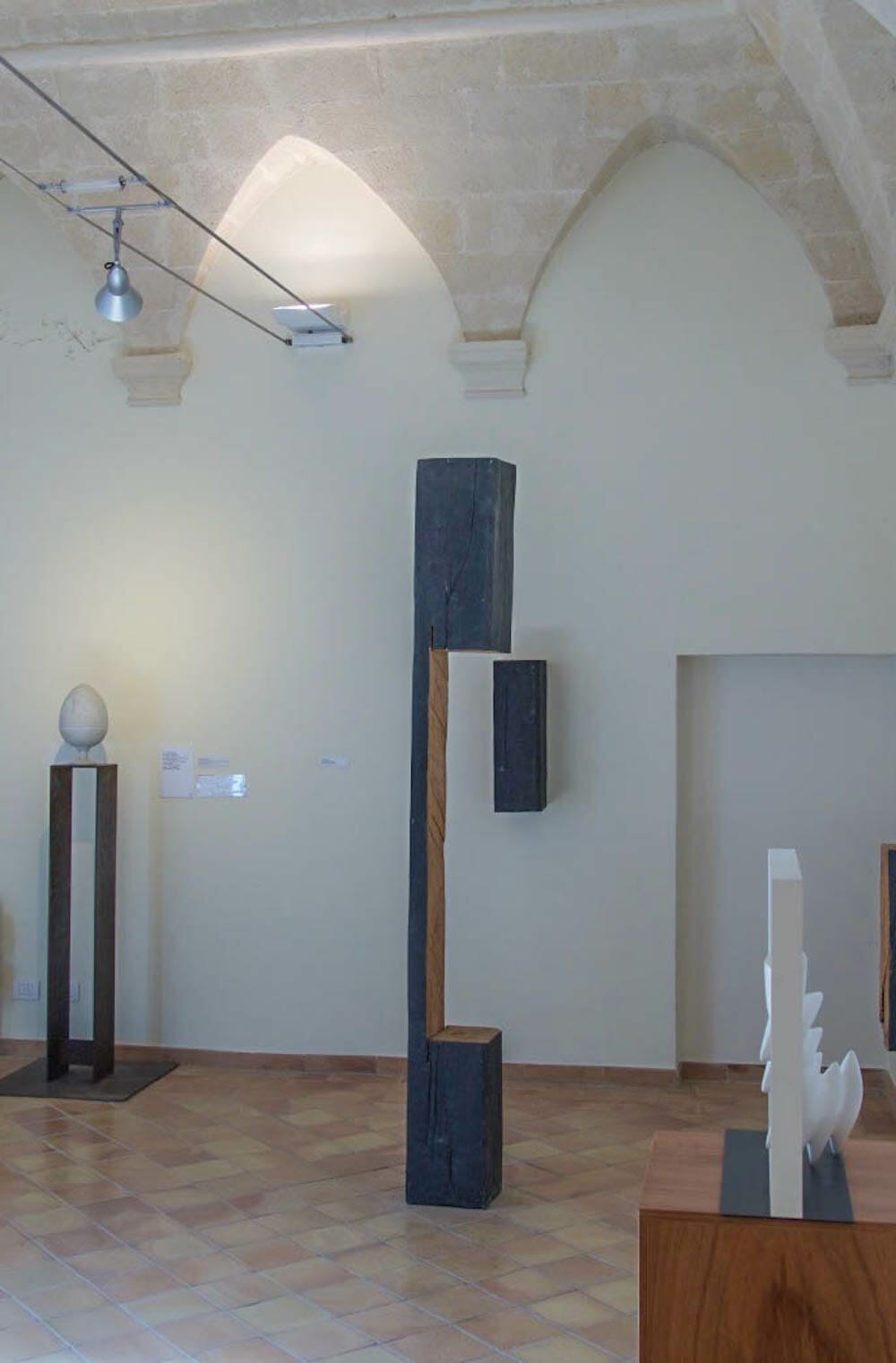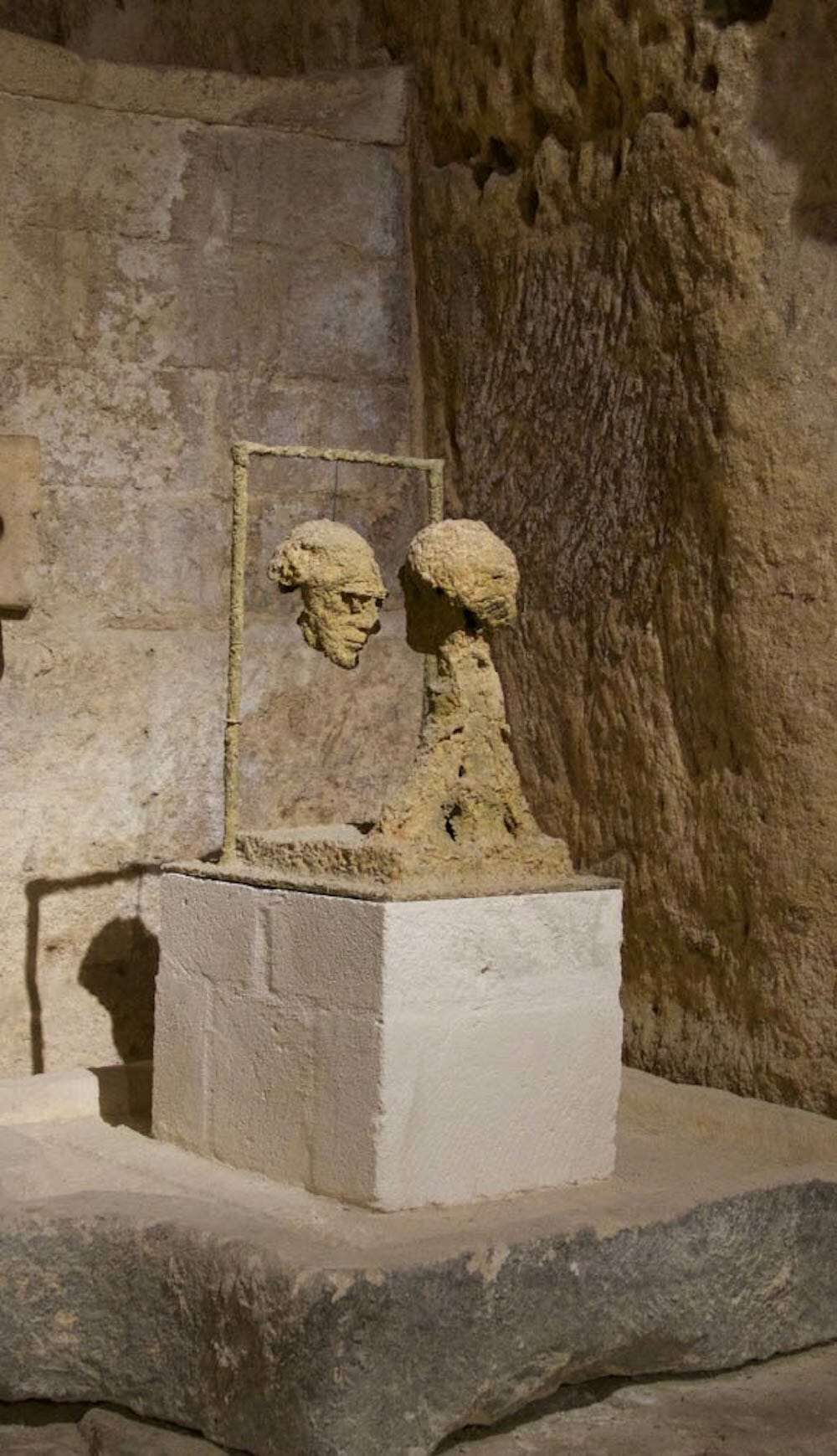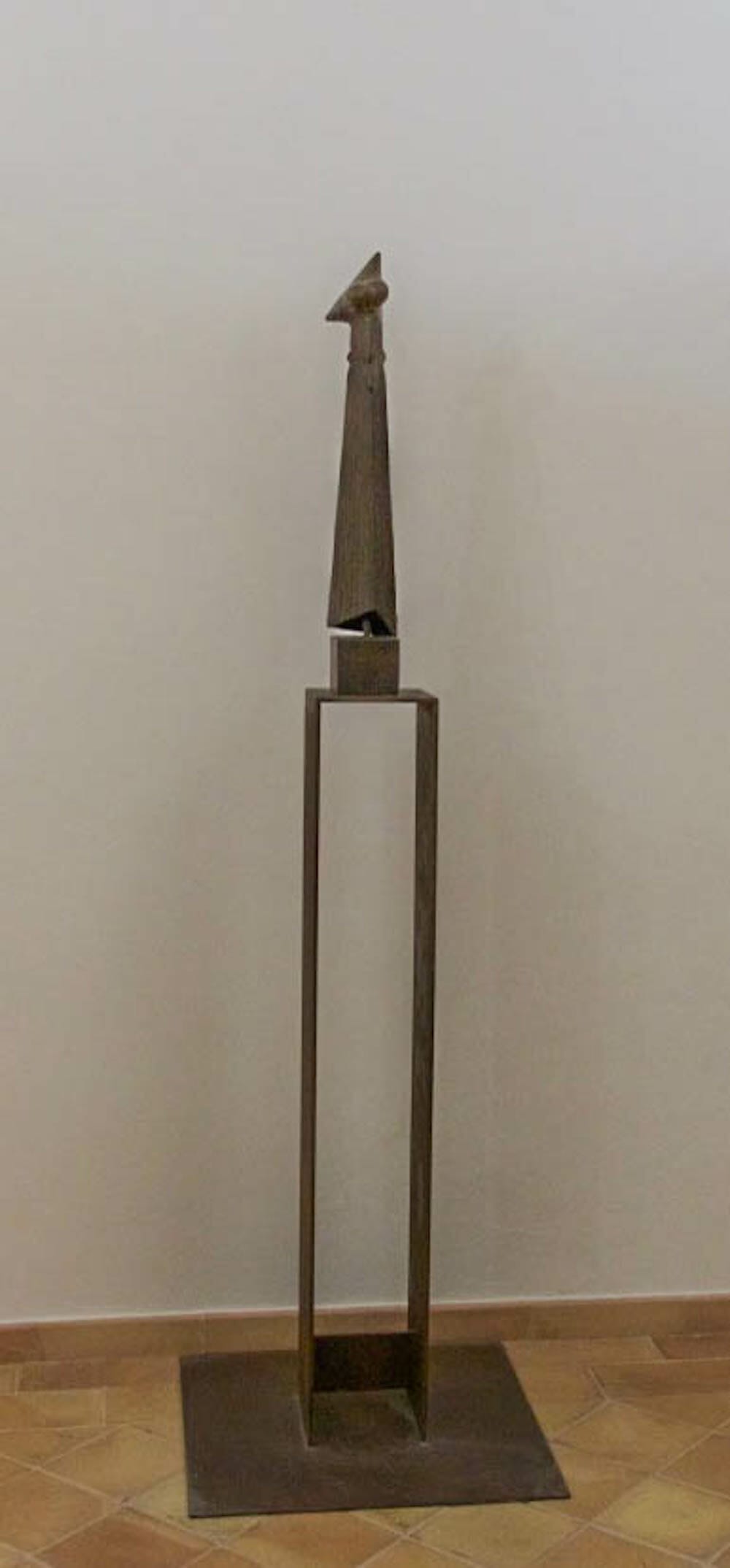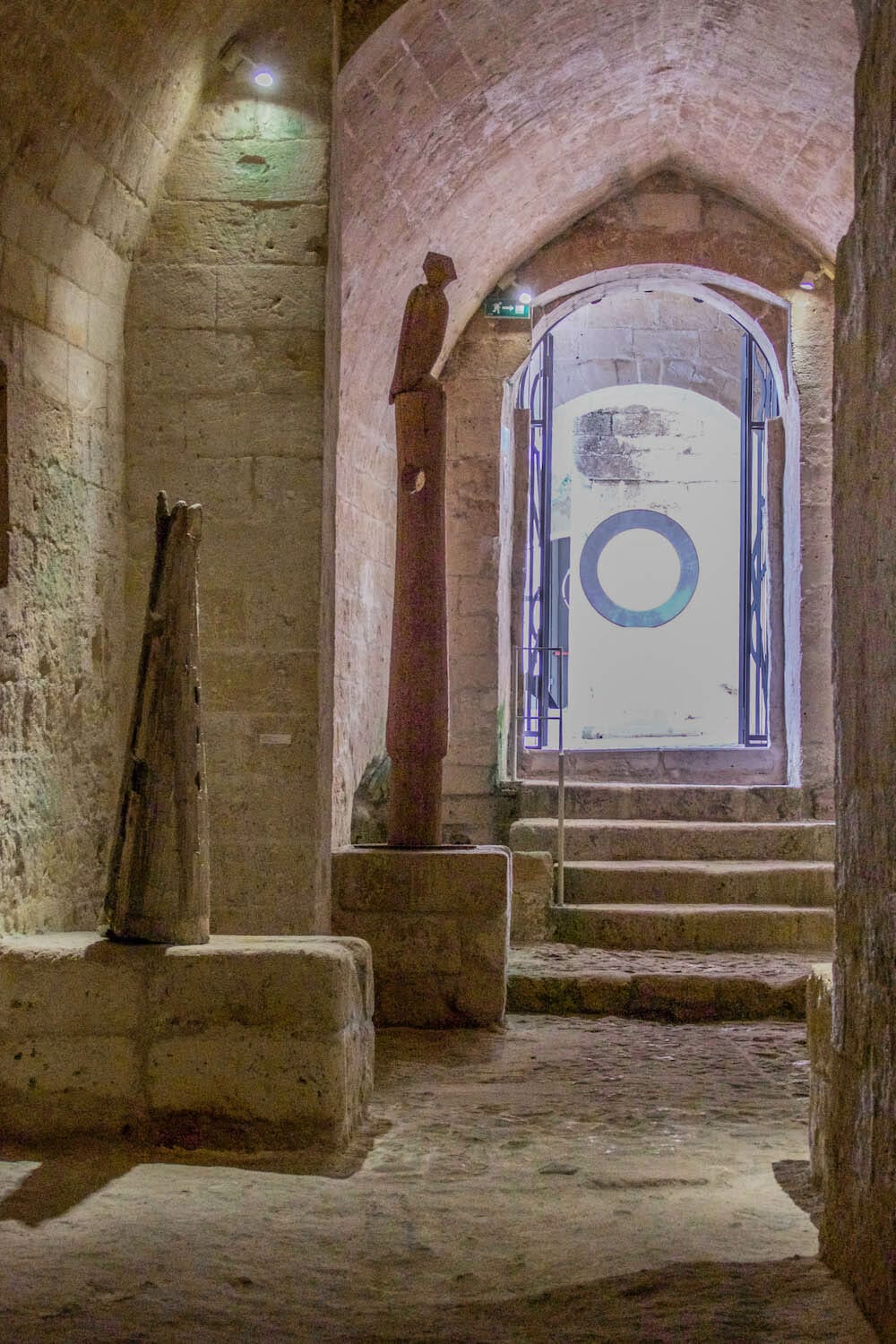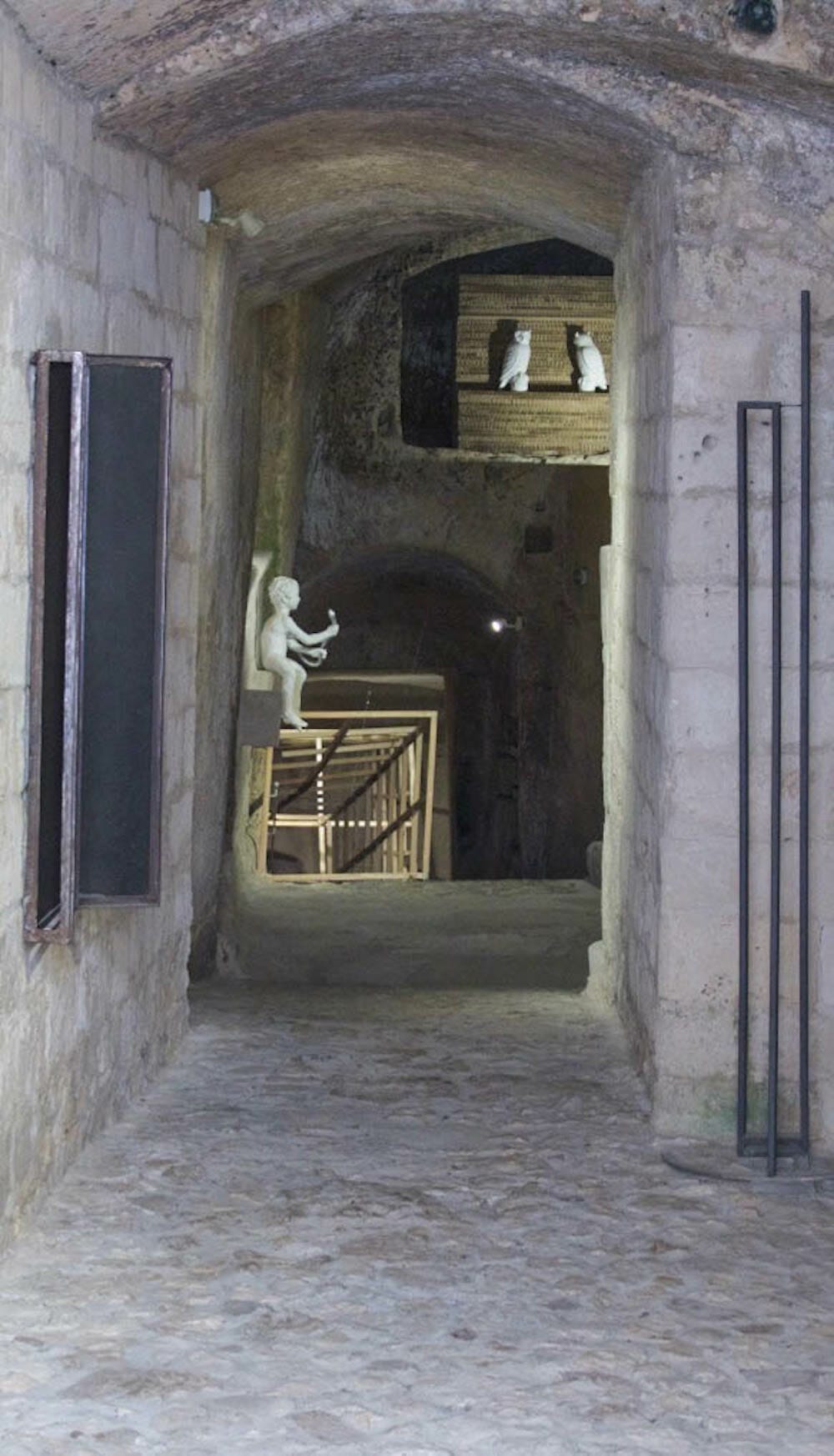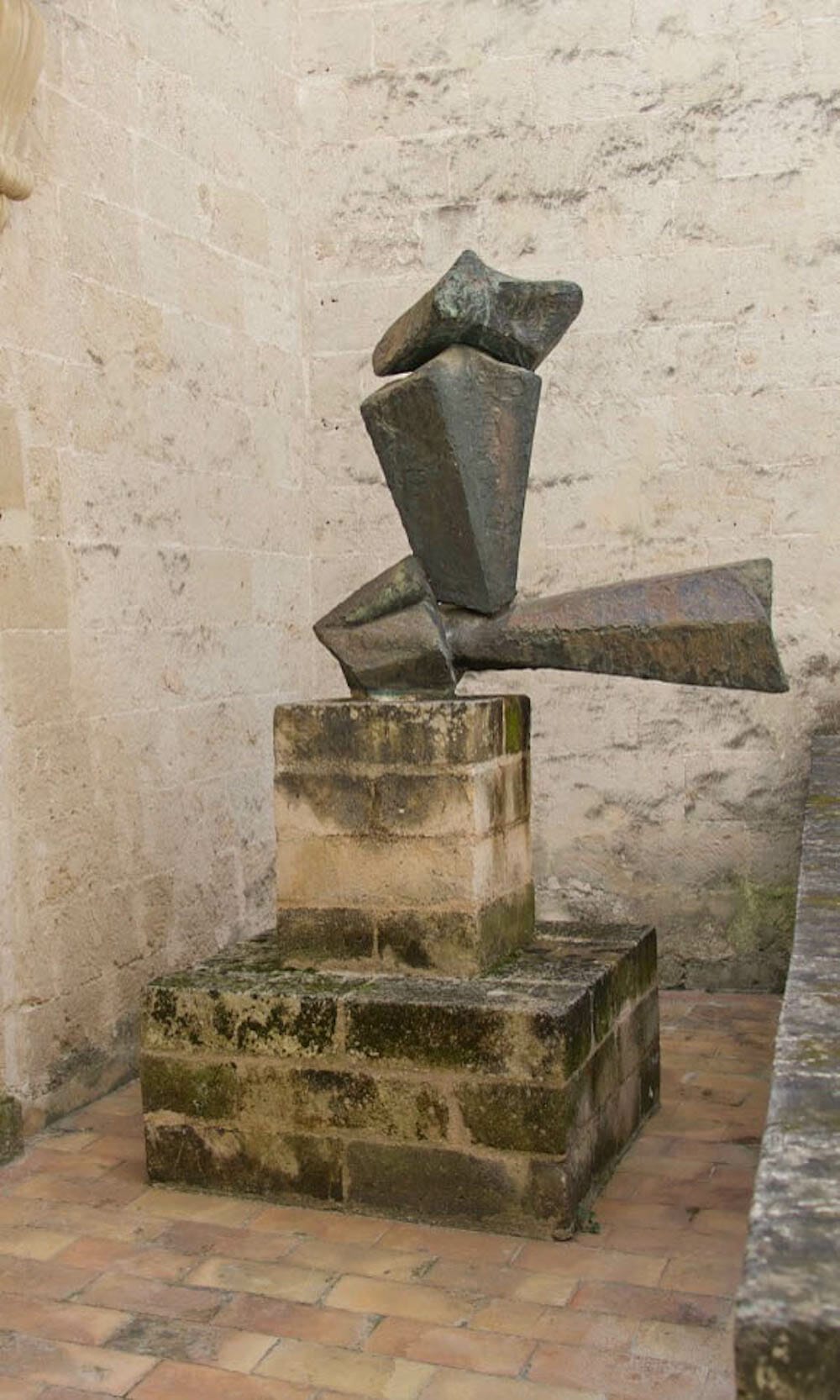MUSMA Matera Italy Review – Sculpture Finds Its Best Terroire - part cave and part palace, MUSMA provides a perfect setting to view contemporary sculpture
You too may leave Matera’s MUSMA (Matera Museum of Contemporary Sculpture) wondering if you will now always find any other art museum setting for sculpture as wanting.
You only have to be in this cave city Matera for but a few hours, and you find that your attention is newly compelled to focus on materials, much as a sculptor does. Buildings are not built on this landscape, but carved from it. They feel alive. Walls are no longer rectilinear frames that you tune out, but rather unexpected curves offering distinct personalities. Your sense of space changes, and you begin to classify locations as more or less cave cozy.
Perhaps the curators at MUSMA knew your mindset would be this way.
Or, perhaps more likely, their residency in Matera to create these exhibitions has given them this home court advantage, so to speak.
Sculpture Thrives in MUSMA Situ
Here are varied sculptural works—from both Italian and foreign artists—that seem to thrive in situ. It’s an equivalent of the best wines being made of grapes cultivated in a best-match nutrient-rich environment – a terroire. MUSMA—part cave and part palace built upon the caves—strikes this writer as a best possible terroire for contemporary sculpture. Stone, wood, metal, castings—all physical forms that sculpture’s soul is rooted in—breathe easy here.
For more information on MUSMA visit the MUSMA website.

